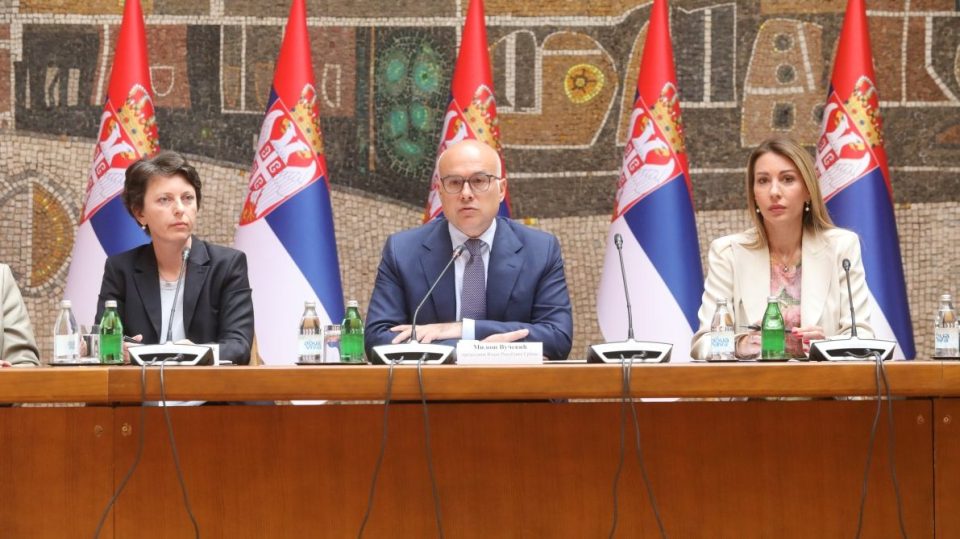Serbia’s ministries of Mining and Energy, of Science, Technological Development and Innovation, of Education, of Environmental Protection and of Health signed a memorandum of understanding on nuclear energy development with 20 faculties, scientific institutions and state energy companies on Wednesday in Belgrade.
Minister of Mining and Energy Dubravka Djedovic Handanovic said after signing that it should “enable the gathering of experts from the country and abroad who will work on examining the possibility of establishing a program for the peacetime application of nuclear energy in Serbia”.
“The topic of energy supply is a matter of both energy and national security, and that is why it is important to consider all the facts in a professional and committed manner and not to skip a single step on the way, because we have no room for mistakes”, she said, according to the ministry’s press release.
The signing was part of a panel headlined “Nuclear energy from the past to the future” which the Ministry labelled as “beginning of the public debate” on using nuclear energy in Serbia.
The Ministry of mining and Energy in June opened a call for preparation of a preliminary technical study to consider the peacetime application of nuclear energy in Serbia.
Djedovic Handanovic said this “should provide a comparative analysis of available technologies on the market, show the advantages and disadvantages of possible solutions and the technical, economic and market parameters for the construction of nuclear power plants”.
Prime Minister Milos Vucevic, who was also present at the event, said: “We are going back to that moment when we gave up something that we shouldn’t have given up, we are going in the direction of a well-developed and organised world”.
Communist Yugoslavia banned the construction of nuclear power plants in 1989 after the Chernobyl catastrophe, and following the break-up of Yugoslavia Serbia continued this policy.
Serbia has been mulling scrapping the ban for a while now.
President Aleksandar Vucic in March announced that Serbian legislation will be changed in his speech to the International Atomic Energy Agency, IAEA, at its first nuclear energy summit in Brussels.
He said Serbia has “three problems”, one of which is a lack of know-how on nuclear energy and the second is money. “Number three … is we will always need to get a change of mindset in our people, which is not easy, but we are ready to do it, which means we will not only adjust but will have to change the overall legislative framework, and we will do it,” Vucic said.
Vucic has long championed nuclear energy. On a TV show in 2022 he said: “Everyone around us lives thanks to nuclear plants … everyone [every country] has enough electricity thanks to nuclear plants; only we were convinced to be the stupidest [country] in Europe and to sign a moratorium on nuclear plants”.
During the energy crisis in 2021, Vucic said Serbia was interested in cooperation with the Hungarian nuclear power plant at Paks. “I already spoke with [Hungarian Prime Minister] Viktor Orbán about the construction of their nuclear plant in Paks, where I once again expressed our desire to be minority co-owners of that nuclear power plant, and we are ready to give money for it,” Vucic told the media.





Comments are closed for this post.